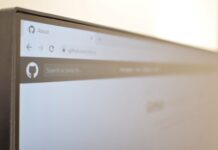
Here in Canada, people across the country spend every February and March preparing and filing their taxes for the year. And every year, some small business owners dread tax season and worry too much about mistakes or missed deadlines. But tax season doesn’t have to be stressful! An accountant can greatly benefit your business when it comes to filing your taxes, and having a professional look everything over can help reduce a lot of unnecessary stress too.
Even if you already have a small business accountant, there is some prep work to be done before you are ready to hand over your tax return to them. Below are some ways that you can prepare your small business for tax season:
- Figure out which type of tax return you will be filing
If you operate a Canadian business, it is the law that you must file an annual business income tax return. But depending on the legal structure of your business, there are different types of tax returns.If you are self-employed, are a sole proprietor, or your business is a partnership: you will need to report your business income on your T1 personal tax return form and on the T2125 form (statement of business or professional activities form). You have three deadlines to take note of: the annual deadline to file your return, the deadline to pay any tax owing from the previous year, and the deadline for individual partners in partnerships to file an annual partnership information return.
If your business is incorporated: you will report your business income on the T2 corporate income tax return form. The annual deadline to file this return is usually six months after your fiscal year-end. - Decide how you will prepare and submit your taxes
There are a few different ways that you can prepare and submit your business tax return. Here are your options:
-
- File it yourself on paper: While most people do not choose this option anymore, it is still available to you. You can file your taxes on paper by printing out the forms from the CRA website and filing the return by mail.
- File it yourself online: Using CRA-certified tax preparation software is another simple way to file your tax return. These software packages make filing T1 and T2 forms secure and convenient. Whether you choose free software or paid software, be sure that it supports tax returns in your province.
- Hire a professional accountant or tax preparer: If you feel overwhelmed by the thought of filing your taxes, or just don’t have the time, outsourcing the task to an accountant or tax preparer might be the best option for you. Hiring someone with experience not only takes the burden off you, but they can also help to maximize deductions and give you tips on how to make your taxes work best for you. Some business owners can even claim the cost of tax preparation as a business expense!
- Gather all required paperwork
Before your accountant can prepare and file your tax return, they will need an updated trial balance for the fiscal year. This means that you’ll need to get your books organized as soon as possible. However, if you keep up with your bookkeeping throughout the year, this task will be much easier. - Use tax credits to your advantage
Tax credits are a great way to lower your balance owing at tax time. There are plenty of provincial and federal tax incentives and credit programs for Canadian businesses of all types and sizes. No matter your sector or business size, it is worth looking to see if your business is eligible for any tax credits. If you aren’t sure where to start, your accountant can help point you in the right direction. - Claim all available business expenses as tax deductions
Many of your business expenses can be claimed on your tax return as deductions, which reduce your total taxable income and help to save you money on your taxes. If your business is home-based, you may be able to claim expenses such as automobile expenses, mortgage interest, utilities, home maintenance, business-related furniture and equipment, and internet. If you are a business owner who drives to work, you may be able to claim items such as gas, car insurance, and vehicle maintenance. You can also claim items such as charitable giving and employee gifts. The best way to determine what you can claim as a business expense is to chat with a professional accountant who can make sure you are claiming as much as possible. - Determine a solid filing system for next year
If you found it tricky to find and compile the correct paperwork for this year’s tax return, it may be worth taking some time to set up a new filing system to save yourself from future headaches. If you want to avoid the same confusion next year, you’ll want to find a bookkeeping schedule and organization system that works for you and your employees. Whether it is using bookkeeping software, creating a spreadsheet, or outsourcing your bookkeeping tasks, consider all of your options and stick to the one that you choose.
If you aren’t prepared to file your tax return on time, you could face added stress, late fees, and government audits. In order to avoid all of these consequences, one of the most important things you can do is get a head start on your bookkeeping and tax season prep. If you already feel like you are falling behind, a professional accountant can help get you set up to prepare for, complete, and submit your small business tax return on time.








